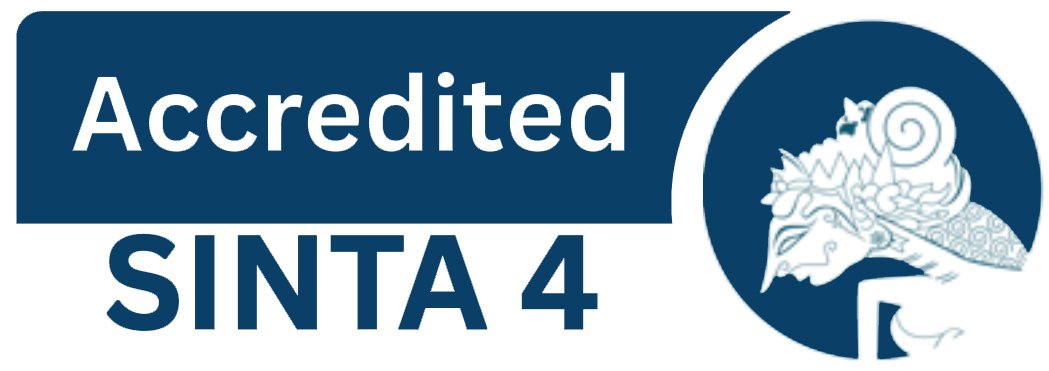UPAYA MENINGKATKAN PEMAHAMAN KONSEP DASAR MATEMATIKA MATERI BANGUN RUANG PADA SISWA KELAS I SD MENGGUNAKAN MODEL REALISTIC MATHEMATIC EDUCATION (RME)
DOI:
https://doi.org/10.22460/collase.v3i6.5163Keywords:
concept understanding, building space, realistic mathematics educationAbstract
This research is a qualitative descriptive study that aims to determine the effectiveness of the application of the Realistic Mathematics Education model and the results of the evaluation of Realistic Mathematic Education in learning material building spaces in grade 1 students of SDIT Al-Fajar Bandung. The research method applied in this study uses a qualitative descriptive approach, namely research that provides an analysis of improving the understanding of mathematical concepts in building material with the existing procedures in applying the RME model, namely the preparation, opening, learning, and final stages. The evaluation of the RME model is seen from student activities based on aspects of oral activities and sees students who are enthusiastic and active in participating in learning activities, do not disturb friends while studying, dare to come to the front of the class and work on questions calmly and not in a hurry. The results showed that the application of the RME learning model on building materials could increase student learning activities and improve student learning outcomes. It can be seen from the results of the pretest students who achieved learning completeness by 27% then experienced an increase in the post-test results to 77%.
References
Heruman, (2007). Model Pembelajaran Matematika di Sekolah Dasar. Bandung: Remaja Rosdakarya.
Isrok’atun, (2018). Model-Model Pembelajaran Matematika. Jakarta: Bumi Aksara.
Kelana, J. B. (2019). Improving the Capability of Prospective Primary School Teachers in Making Science-Based Science Teaching Materials Based on ICT Media Assisted Literacy. 382(Icet), 1–4.
Kelana, J. B. (2016). PENGARUH PENDEKATAN KONTEKSTUAL TERHADAPKETERAMPILAN PROSESSAINS SISWA KELAS V SEKOLAH DASAR PADA MATERI SIFAT-SIFAT CAHAYA (Doctoral dissertation, UNIVERSITAS PENDIDIKAN INDONESIA).
Kelana, J. B., Wardani, D. S., Firdaus, A. R., Altaftazani, D. H., & Rahayu, G. D. S. (2020, October). The effect of STEM approach on the mathematics literacy ability of elementary school teacher education students. In Journal of Physics: Conference Series (Vol. 1657, No. 1, p. 012006). IOP Publishing.
Mairing Jackson, (2017). Pendidikan Matematika Realistik Suatu Alternatif Pendekatan Pembelajaran Matematika. Yogyakarta: Graha Ilmu.
Nasution, (2008). Berbagai Pendekatan Dalam Proses Belajar & Mengajar. Jakarta: Bumi Aksara.
Ningsih, (2014). Pembelajaran Matematika Yang Menyenangkan. Jakarta: Depdiknas, 2014
Rahayu, G. D. S., Altaftazani, D. H., Kelana, J. B., Firdaus, A. R., & Fauzi, M. R. (2020, October). Analysis of elementary school students’ mathematical resilience during learning during the covid 19 Pandemic. In Journal of Physics: Conference Series (Vol. 1657, No. 1, p. 012001). IOP Publishing.
Sudjiono, Anas, (2009). Pengantar Statistik Pendidikan. Jakarta: PT. Raja Grafindo Persada.
Sugiyono, (2018). Metode Penelitian Kuantitatif, Kualitatif, dan R & D. Bandung: Alfabeta.
Sunarroso, (2008). Model pembelajaran Matematika Inovatif-Progresif. Jakarta, Kencana.
Susanto, Ahmad. (2013). Teori Belajar dan Pembelajaran di Sekolah Dasar. Jakarta Kencana.
Wahyu, (2016). Ilmu Pendidikan. Yogyakarta: Teras.
Wijaya, Ariyadi, (2012). Pendidikan Matematika Realistik.Yogyakarta: Graha Ilmu.
Zulkardi, (2010). Pendidikan Matematika Di Indonesia, Permasalahan Dan Upaya Penyelesaiannya. Palembang: percetakan unsri.



